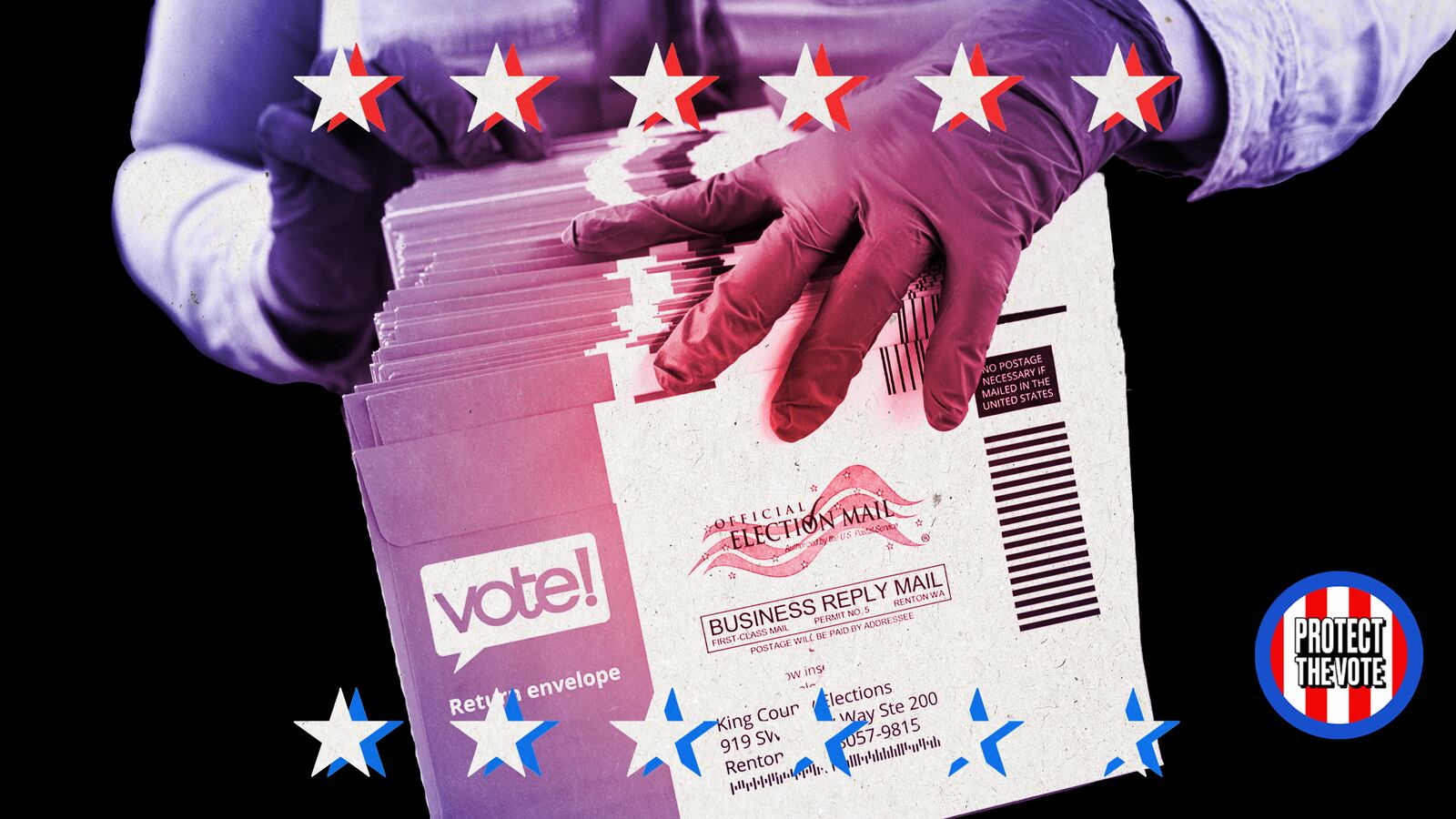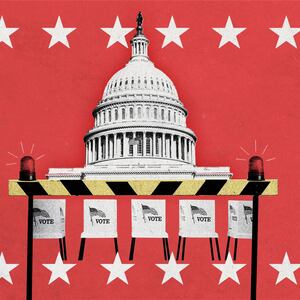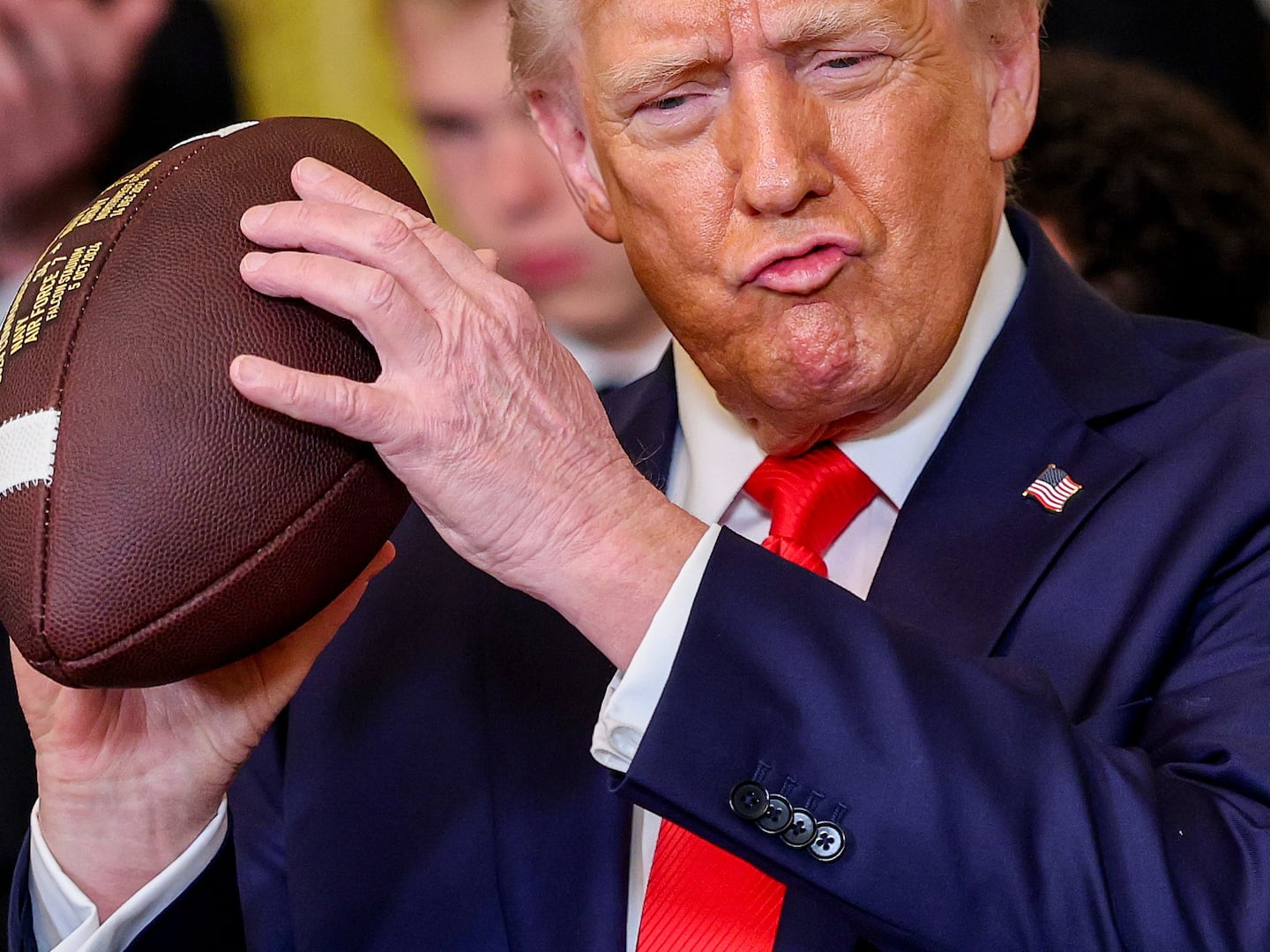Rick Barron was the chief election official for Fulton County—Georgia’s most populous county—for eight years. But by the end of 2021, he had resigned from his post. It had become too dangerous.
In the months following the 2020 presidential election, Barron said he received over 150 voicemails containing heinous death threats against him and his family.
“We’re coming after you and every mother****er that stole this election with our Second Amendment, subpoenas be damned, you’re going to be served lead,” a caller threatened in one typical voicemail.
Al Schmidt served for 10 years as a commissioner on the City Commission that runs elections in Philadelphia, Pennsylvania. But President Donald Trump, unwilling to accept he lost the 2020 presidential election, claimed Schmidt was “being used by the Fake News Media” to rig the election. Shortly afterwards, Schmidt and his staff received a colossal number of death threats. One message said, “Tell the truth or your three kids will be fatally shot.” The message included the younger Schmidts’ names, address, and a picture of their home. Schmidt resigned at the end of 2021 as well.
Barron and Schmidt’s situations are far from unique. Racist epithets, death threats, and physical violence are now commonplace in the job of an election official—whether in a position of command or a volunteer.
A poll worker in South Florida, Jeffrey Kasky, shared in a column that someone attacked his precinct supervisor with an umbrella, injuring her forehead. Another election worker in Georgia, Ruby Freeman, a 60-year-old Black woman, received nearly 500 threatening emails and text messages to her personal phone and email accounts. These messages were filled with racial slurs and threats, including one that read: “We know where you live, we coming to get you.”
A survey published by the Brennan Center last summer found that nearly one in three local election officials do not feel safe in their jobs.

Why is this happening? It’s simple: Republicans are spreading former President Donald Trump’s “Big Lie” that the 2020 presidential election was stolen by Democrats and the “deep state.”
And their supporters do exactly what you might expect someone who believes their democracy has been upended by a coup: they threaten (and sometimes commit) violence, which they justify as patriotism in service of their besieged country.
When Trump implores his supporters to fight for an America that’s been overtaken by an illegitimate government, they believe him. They imagine the country their grandparents fought for is being stolen right from under them. And Trump also insists not only are the “bad” politicians guilty, but that volunteer election workers are “radical left” henchmen.
These everyday Americans working for little to no pay, and with no political power whatsoever, are then caught in the middle of a tempest. Their lives are put in danger, and the foundations of our democracy are further eroded.
This onslaught demands action.
The Department of Justice (DOJ) has already launched a task force focused on combating threats to election officials—but states and local governments must also create their own. In states with GOP-led legislatures, creating task forces to protect election workers might seem like an uphill battle, but it’s not impossible.
Even in states where the “Big Lie” is parroted by elected officials, some Republicans have expressed concerns about election workers’ safety.
Wisconsin State Sen. Kathleen Benier, the Republican chair of the state legislature’s elections committee, spoke out about the severity of the dangerous threats election workers are facing. “I am a Republican. I vote conservative. I want Republicans to win and for our good policies to continue forward. This is a charade—what’s going on with this constant drumbeat of all the massive voter fraud,” Sen. Benier said in December 2021.
The fact is, creating a state-based task force focused on protecting election workers will require partnering strategically with Republicans who are honest enough to reject the “Big Lie.”
States can also help election workers better protect the privacy of their personal information online and guard themselves against harassment, stalking, and other forms of intimidation. For instance, states could issue grants to help fund training on best practices for keeping one’s personal information secure online—like removing home addresses and their kids’ names from people-finder websites. Approaching these issues thoughtfully and carefully, legislators can and should try to thread the needle of ensuring public access to information about those administering elections on the public’s behalf, while protecting the safety of election workers on the job.
Trump and his political allies have shown no interest in ending the vitriol and spread of false information. In a study done by States United Democracy Center, at least 53 election deniers are running for governor in 25 states this November. There has been no political penalty paid for spreading the “Big Lie.” It’s a deranged falsehood, and it has incited violence.
As we head into the midterm elections in November, given the depth of the political gridlock in Washington and heightened tensions in political discourse, local and state governments must step up to the plate to protect election workers. And if they don’t, the countless volunteers and staff who run our elections will continue to be in danger—as will the integrity of our elections.
We owe these workers more than concern, we owe them the ability to live their lives.








